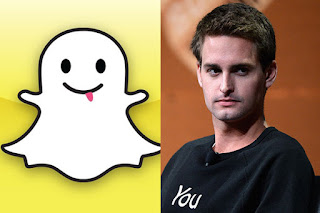 The week before the previous saw a drawn battle between
Snapchat and the people of India. The row was caused as a result of the comment
by the CEO Evan Spiegel who termed India as a poor nation and not worthy to
expand into. The comment received the ire of the Indian youth who were primary
users of the app and led to an epic number of uninstallations of the app. This
and also the low rating on the play store may have been a big blow to the app
which had become quite a trend among youngsters.
The week before the previous saw a drawn battle between
Snapchat and the people of India. The row was caused as a result of the comment
by the CEO Evan Spiegel who termed India as a poor nation and not worthy to
expand into. The comment received the ire of the Indian youth who were primary
users of the app and led to an epic number of uninstallations of the app. This
and also the low rating on the play store may have been a big blow to the app
which had become quite a trend among youngsters.
But the entire fight did explain one clear thing. The
Internet and its many technologies which form the backbone of many businesses
in the current world are significantly impacted by India. And it has a good
reason because the Internet penetration in the country is far better than any
other country in the world. Also there is hidden potential in the rural India
which has a mere penetration of less than 30% (about 200 million users). Also
the Smartphone penetration in rural India is less than 20% which is poised to
increase in the coming decades.
India’s youth has an inquisitive nature that prompts them to
try out various apps that come out. The Silicon Valley and various other IT
hubs in the world are earning profits in the Internet business using this user
base that is abundant and immense. In such a case careless remarks made by the
core marketing person of the company comes as a massive shock to the world. In
the Internet world the news spreads even faster than a wild-fire. Such news
could have been the death-spell of a flourishing business. And particularly one
expects some maturity in chatter coming from a CEO as compared to a normal
employee. In this case apparently the employees were sensible enough to put the
limelight on their boss’ words.
The fight was a one-sided affair as the people are the
principal stakeholders in a transparent world. Gone are the days of closed-room
corporate meetings that were exclusive. The average stakeholder knows more than
the owners of the company and is free to choose whom to support and whom not.
Well it is better late than never; even now the tables can be turned and the
company can choose whether to let a good forest burn due to a careless fire or
put out the fire before it turns on them as well.


No comments:
Post a Comment